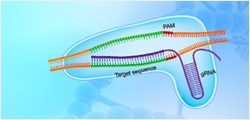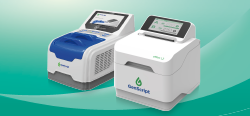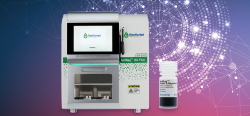| Species |
Human |
| Protein Construction |
Acrp30 (Lys101-Asn244)
Accession # Q15848 |
|
| Purity |
> 95% as analyzed by SDS-PAGE |
| Endotoxin Level |
< 0.2 EU/μg of protein by gel clotting method |
| Biological Activity |
ED50 < 2.0 μg/ml, measured in a cell proliferation assay using M1 cells. |
| Expression System |
HEK 293 |
| Apparent Molecular Weight |
16~17 kDa, on SDS-PAGE under reducing conditions. |
| Formulation |
Lyophilized after extensive dialysis against PBS. |
| Reconstitution |
It is recommended that this vial be briefly centrifuged prior to opening to bring the contents to the bottom. Reconstitute the lyophilized powder in ddH?O or PBS up to 100 μg/ml. |
| Storage & Stability |
Upon receiving, this product remains stable for up to 6 months at lower than -70°C. Upon reconstitution, the product should be stable for up to 1 week at 4°C or up to 3 months at -20°C. For long term storage it is recommended that a carrier protein (example 0.1% BSA) be added. Avoid repeated freeze-thaw cycles. |

ED??< 2 μg/ml, measured in a cell proliferation assay using M1 cells.
| Target Background |
Adiponectin is an important adipokine involved in the control of fat metabolism and insulin sensitivity. It is synthesized exclusively by adipocytes and secreted into plasma. It antagonizes THF-alpha by negatively regulating its expression. It also inhibits endothelial NF-kappa-B signaling through a cAMP-dependent pathway. Adiponectin can form low molecular weight complexes (LMW), middle molecular weight complexes (MMW) and higher molecular weight complexes (HMW). These bind to various growth factors, such as HBEGF, PDGFB and FGF2, and play a role in cell growth, angiogenesis and tissue remodeling. |
| Synonyms |
Acrp-30; GBP-28; Apm-1 |
For laboratory research use only. Direct human use, including taking orally and injection and clinical use are forbidden.





































